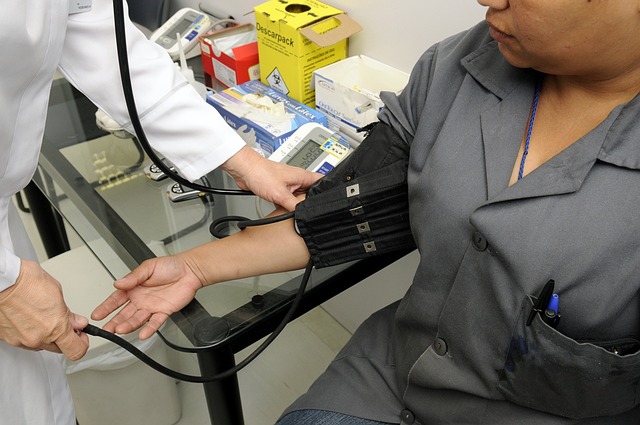Post-traumatic stress disorder (PTSD) counseling utilizes specialized, evidence-based therapies like Cognitive Processing Therapy (CPT), Eye Movement Desensitization and Reprocessing (EMDR), and Prolonged Exposure (PE) to address complex trauma. These approaches help individuals process traumatic memories, reframe negative thoughts, reduce emotional distress, and regain control over their lives. Both individual and group therapy offer unique benefits, with the latter fostering connection, resilience, and peer support. Trauma-Informed Care ensures every aspect of therapy is sensitive to traumatic experiences, enhancing engagement and allowing individuals to heal at their own pace. Accessing specialized PTSD treatment through community resources like mental health centers or private practices offers tailored support for effective recovery.
“Discover the transformative power of specialized PTSD counseling, a crucial component of effective trauma healing. This comprehensive guide explores various aspects of PTSD treatment, from understanding the condition’s far-reaching effects to uncovering evidence-based practices. We delve into unique counseling techniques tailored to address complex PTSD symptoms, emphasizing individual vs. group therapy benefits. Learn how trauma-informed care integrates seamlessly with specialized services, offering a holistic path to recovery. Access valuable insights on navigating these resources and embark on a journey towards resilience.”
Understanding PTSD: A Comprehensive Overview

Post-traumatic stress disorder (PTSD) is a complex mental health condition that can arise after exposure to traumatic events. It’s important to understand that PTSD isn’t simply about feeling scared or having flashbacks; it significantly impacts an individual’s daily functioning and overall well-being. This condition often manifests as persistent re-experiencing of the trauma, avoidance of reminders, heightened arousal, and negative changes in thoughts and mood.
Effective PTSD treatment focuses on helping individuals process and manage these symptoms. Specialized counseling plays a pivotal role in this process by providing a safe space for clients to explore their traumatic experiences. Through evidence-based therapies like Cognitive Processing Therapy (CPT) or Eye Movement Desensitization and Reprocessing (EMDR), counselors assist clients in reframing negative thoughts, reducing emotional distress, and regaining control over their lives.
The Role of Counseling in PTSD Treatment

PTSD counseling plays a pivotal role in the comprehensive treatment and management of Post-Traumatic Stress Disorder. Specialized therapy sessions offer individuals affected by PTSD a safe space to process and express their traumatic experiences, emotions, and memories. Through evidence-based therapeutic approaches, such as Cognitive Behavioral Therapy (CBT) or Eye Movement Desensitization and Reprocessing (EMDR), counselors help clients challenge negative thought patterns, reduce the intensity of distressing memories, and develop healthy coping mechanisms.
Counseling provides a structured framework to navigate the complex landscape of PTSD. It enables individuals to gain insights into their trauma response, understand the impact of the traumatic event(s), and cultivate resilience. The therapeutic process encourages self-reflection, emotional regulation, and the development of adaptive strategies for managing symptoms. Moreover, counseling facilitates social reintegration by fostering better communication, strengthening relationships, and helping individuals reconnect with supportive networks, all of which contribute to enhanced PTSD treatment outcomes.
Specialized PTSD Counseling Techniques and Approaches

Specialized PTSD counseling techniques go beyond traditional therapy methods, employing evidence-based approaches tailored to address complex trauma responses. These strategies often include eye movement desensitization and reprocessing (EMDR), a technique that helps individuals process traumatic memories by triggering the brain’s natural healing mechanisms through bilateral stimulation, such as side-to-side eye movements or tones. This process allows for the integration of painful memories into ordinary awareness, reducing their intense emotional grip.
Cognitive processing therapy (CPT) is another effective approach, focusing on identifying and challenging negative thoughts and beliefs arising from trauma. By restructuring these cognitive distortions, individuals can develop healthier perspectives and coping mechanisms. Additionally, prolonged exposure (PE) therapy involves gradual and controlled encounters with traumatic memories and triggers to help patients confront and overcome their fears, ultimately reducing avoidance behaviors and symptoms of anxiety and depression associated with PTSD.
Individual vs Group Therapy for PTSD

When it comes to treating Post-Traumatic Stress Disorder (PTSD), both individual and group therapy have their unique advantages. Individual therapy provides a personalized approach, allowing for in-depth exploration of traumatic experiences in a safe, one-on-one setting. This form of therapy is beneficial for those who prefer more privacy or have specific needs that cannot be addressed in a group setting. A therapist can tailor the sessions to the individual’s pace and address any co-occurring disorders or unique circumstances.
Group therapy, on the other hand, offers a supportive community where individuals with shared experiences can connect and understand one another. In a group environment, PTSD sufferers can learn from each other’s resilience and gain new coping strategies through peer support. This dynamic can enhance the healing process as it promotes a sense of belonging and reduces feelings of isolation. Group therapy is particularly effective for building social skills, improving communication, and fostering a network of support that extends beyond the therapy room.
Integrating Trauma-Informed Care in PTSD Counseling

Integrating Trauma-Informed Care is a transformative approach within PTSD counseling, recognizing that individuals affected by trauma have unique needs. This method ensures every aspect of therapy is sensitive to the potential impacts of traumatic experiences, fostering a safe and supportive environment. By adopting this strategy, counselors can effectively address complex symptoms associated with PTSD, such as flashbacks, nightmares, and severe anxiety.
Trauma-Informed Care involves tailoring treatment plans to accommodate individual trauma histories, promoting healing and recovery. It emphasizes the importance of building trust, encouraging open communication, and validating clients’ feelings. This personalized approach enhances engagement in therapy, enabling individuals to process their traumatic memories at a pace comfortable for them. As a result, PTSD treatment becomes more accessible and successful, providing those affected with the tools to reclaim their lives.
Evidence-Based Practices in Specialized PTSD Counseling

Specialized PTSD counseling leverages evidence-based practices to provide targeted and effective therapy for individuals dealing with post-traumatic stress disorder (PTSD). These approaches, backed by rigorous research, are designed to help clients process and overcome traumatic memories and emotions. Cognitive Processing Therapy (CPT) and Prolonged Exposure (PE) are two prominent examples. CPT focuses on challenging negative beliefs associated with the trauma, while PE involves repeated exposure to traumatic reminders in a safe environment to reduce anxiety and fear responses.
Additionally, other effective strategies include Eye Movement Desensitization and Reprocessing (EMDR), which facilitates the processing of traumatic memories through bilateral stimulation, and Mindfulness-Based Therapies that teach individuals how to stay present and manage distressing thoughts and feelings related to trauma. These evidence-based practices have shown significant promise in improving PTSD symptoms, offering hope and healing for those who have experienced traumatic events.
Accessing and Navigating Specialized PTSD Counseling Services

Accessing specialized PTSD counseling services is a crucial step in the journey towards recovery for individuals dealing with post-traumatic stress disorder. Many communities now offer tailored support, ensuring veterans, survivors, and at-risk populations receive the most effective care. These services often include advanced therapeutic techniques specifically designed to address complex trauma, providing a safe space for individuals to process their experiences.
Navigating this landscape involves understanding local resources, whether through community mental health centers, veteran affairs facilities, or private practices specializing in PTSD treatment. Many counseling centers offer initial consultations to assess needs and match clients with appropriate therapists. This personalized approach ensures individuals receive the most fitting care, fostering a supportive environment for healing and growth.
